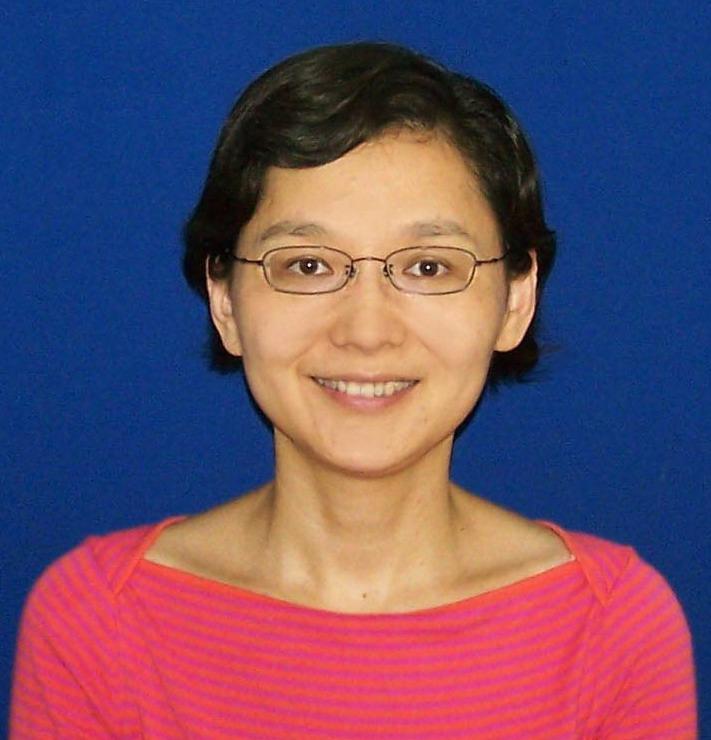
M.D., Fudan University, Shanghai Medical College
Ph.D. University of Texas, Southwestern Medical Center, USA
Mingfang Lu, Investigator
Address: Building 13, Room 807 130 Dong An Road, Xu Hui District Shanghai, 200032
Phone Number: 86-21-54237751
Fax: 86-21-54237563
E-mail: mingfanglu@fudan.edu.cn
Lab Staff and Students
Benkun Zou Wei Jiang
Research Interests
After animals encounter pathogens, inflammatory responses are elicited to fight against infection. When the infection is cleared, it is important to resolve the inflammation and restore immune homeostasis. Prolonged inflammation may compromise host defense, lead to tissue damage as well as many diseases.
Our previous studies have shown mice that cannot inactivate Gram-negative bacterial LPS (endotoxin) have prolonged inflammation after exposure to LPS. Their macrophages became reprogrammed for months and they were more susceptible to bacterial infection. The major area of research in the lab now is to understand the role of LPS inactivation in disease models.
Publications: (*Corresponding author)
1. Lu M, Kho T, and Munford R.S. 2014. Prolonged Triglyceride Storage in Macrophages: pHo Trumps pO2 and TLR4. J Immunol 193(3):1392-7.
2. Janelsins, B.M., Lu, M., and Datta, S.K. 2014. Altered inactivation of commensal LPS due to acyloxyacyl hydrolase deficiency in colonic dendritic cells impairs mucosal Th17 immunity. Proc Natl Acad Sci U S A 111:373-8.
3. Huang, Y.L., Morales-Rosado, J., Ray, J., Myers, T.G., Kho, T., Lu, M., and Munford, R.S. 2014. Toll-like receptor agonists promote prolonged triglyceride storage in macrophages. J Biol Chem 289:3001-12.
4. Lu, M.*, Varley, A.W., and Munford, R.S. 2013. Persistently active microbial molecules prolong innate immune tolerance in vivo. PLoS Pathog 9:e1003339. (Recommended to Faculty 1000)
5. Lu, M.*, and Munford, R.S. 2011. The transport and inactivation kinetics of bacterial lipopolysaccharide influence its immunological potency in vivo. J Immunol 187:3314-3320.
6. Munford, R., Lu, M., and Varley, A. 2009. Chapter 2 Kill the Bacteria…and Also Their Messengers? 103:29-48.
7. Lu, M.*, Varley, A.W., Ohta, S., Hardwick, J., and Munford, R.S*. 2008. Host inactivation of bacterial lipopolysaccharide prevents prolonged tolerance following gram-negative bacterial infection. Cell Host Microbe 4:293-302. (Cover article)
8. Shao, B., Lu, M., Katz, S.C., Varley, A.W., Hardwick, J., Rogers, T.E., Ojogun, N., Rockey, D.C., Dematteo, R.P., and Munford, R.S. 2007. A host lipase detoxifies bacterial lipopolysaccharides in the liver and spleen. J Biol Chem 282:13726-13735.
9. Lu, M., Zhang, M., Takashima, A., Weiss, J., Apicella, M.A., Li, X.H., Yuan, D., and Munford, R.S. 2005. Lipopolysaccharide deacylation by an endogenous lipase controls innate antibody responses to Gram-negative bacteria. Nat Immunol 6:989-994.
10. Feulner, J.A., Lu, M., Shelton, J.M., Zhang, M., Richardson, J.A., and Munford, R.S. 2004. Identification of acyloxyacyl hydrolase, a lipopolysaccharide-detoxifying enzyme, in the murine urinary tract. Infect Immun 72:3171-3178.
11. Lu, M., Zhang, M., Kitchens, R.L., Fosmire, S., Takashima, A., and Munford, R.S. 2003. Stimulus-dependent deacylation of bacterial lipopolysaccharide by dendritic cells. J Exp Med 197:1745-1754.
12. Lu, M., and Jiang, W. “Pharmacokinetics of Imported Nisoldipine in Chinese Healthy Volunteers.” Chinese Journal of Clinical Pharmacology. 1996. 12:93-98.
